Key Information
CPD Hours: 8 hours
Course Length: Two hours
Course Format: A series of four, two-hour weekly webinars (which can be viewed live and/or as recorded versions)
Enrol Now
This course may run again in the future. To register your interest please contact us.
Alternatively you can download and email using our Registration Form
Course Information
- Triage of the ECC patient
- Initial stabilisation and diagnostics
- Management of urogenital trauma
- Management of the acute abdomen
- When is application of external coaptation appropriate
- Preoperative fracture planning
- Traumatic brain injuries
- Acute spinal cord injuries
This recorded webinar series is for purchasing if you wish to attend the practical day: Management of the small animal trauma patient practical day on Tuesday 10th July. Webinars are viewed as recordings and must be watched to be able to attend the onsite practical course.
Are you worried how to manage the multi-trauma patient? Where do you start when faced with the patient who has sustained major trauma? How do you decide on initial management and definitive treatment?
This webinar series will provide a solid foundation for veterinary surgeons who wish to review, consolidate and update their knowledge on stabilisation and management of the small animal trauma patient. The webinars will cover initial management strategies and recognition of priorities. They will also cover techniques and definitive/temporary strategies to manage the patient with soft tissue, orthopaedic and neurological injuries.
Triage and assessment of the trauma patient and initial stabilization and diagnostic techniques will be covered in the first webinar. The following three webinars will cover management of urogenital trauma, the acute abdomen, initial management of orthopaedic injuries including when to cast and when not to and how to approach the patient with brain/spinal cord injuries.
Why do this course?
The webinars aim to equip you with the tools that are required to manage the trauma patient and so increase your confidence and reduce your stress!
The practical day will allow you to practice many of the skills discussed during the course. You will have the opportunity to practice techniques discussed during the webinars on cadavers under the guidance of RVC specialists in ECC and soft tissue surgery. You will be shown how to gain intravenous access in an emergency, perform lifesaving procedures and optimise initial diagnostics.
Techniques taught will include AFAST and TFAST, tracheostomy tube placement, placement of chest drains and central lines and emergency cut downs. There will also be practical tips for management of urogenital and gastrointestinal trauma and how to control intra-abdominal bleeding. You must have viewed the four webinars to participate in the practical day.
Stefano Cortellini, DVM MVetMed DipACVECC DipECVECC FHEA MRCVS
Senior Lecturer in Emergency and Critical Care Medicine
The Royal Veterinary College
Joe Fenn, BVetMed MVetMed DipECVN FHEA MRCVS
Associate Professor in Veterinary Neurology and Neurosurgery
The Royal Veterinary College
Elvin Kulendra, BVetMed MVetMed CertVDI PgCert(VetEd) DipECVS FHEA MRCVS
Consultant surgeon
North Downs Specialist Referrals
Nicola Kulendra, BVetMed MVetMed CertVDI PCertVetEd DipECVS FHEA FRCVS
Consultant surgeon,
North Downs Specialist Referrals
Relevant CPD courses you may find of interest
Webinar Plus: Fundamentals of emergency medicine: Part 1
Webinar Plus: Fundamentals of emergency medicine: Part 2
Webinar Plus: Management of the small animal trauma patient
Blood gas and electrolyte analysis for beginners – what does it actually tell me?
Webinar Plus: Building resilience to the challenges and pressures of practice
Webinar Plus: Master how to thrive (not just survive) in veterinary practice
Webinar Plus: Training the trainer – what to do with EMS students and new grads

